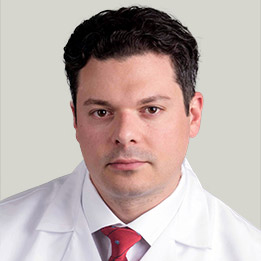Will I Know if My Child Needs Braces?

Kenilworth, IL – As your children grow, you no doubt want to stay on top of everything they need to ensure their health and well-being. For some children this will mean visits to an orthodontist to ensure a healthy smile and properly functioning bite. Will you be able to tell if your child needs orthodontic treatment?
“Sometimes parents may be able to tell on their own that their child’s developing smile needs the intervention of an experienced orthodontist,” says Dr. Michael Stosich of Stosich Consulting who also serves orthodontic patients from Round Lake area. “Other times, however, the issue is a bit more nuanced and can’t be seen by the untrained eye. Even small discrepancies in your child’s bite can cause lasting damage so it’s important to begin a relationship with an orthodontist at an early age. This way, if we deem treatment is necessary, we can begin it when it will have the most impact.”
Dr. Stosich does offer parents some advice on what to look for to catch signs that could turn in to orthodontic issues.
- Losing baby teeth too early, too late or in an irregular pattern
- Pain or other problems when chewing or biting
- Crooked or crowded teeth, especially with some teeth blocked
- Jaw that shifts or makes noises
- Teeth that do not touch
- Breathing through the mouth
- Extended pacifier use or finger or thumb sucking
- Protruding or recessed jaws
- Biting the roof of the mouth or insides of the cheeks
- Teeth or jaws that seem out of proportion to the face
Developing a relationship with an orthodontist is important to help determine if your child’s growing smile could benefit from orthodontic treatment. The American Association of Orthodontists recommends that children see an orthodontist for the first time at the age of seven. This ensures that any issues that may be present as the smile is taking shape can be taken care of and corrected when it is the most efficient to do so.
“Children have the benefit of a jaw that is still growing,” says Dr. Stosich. “So that makes our job a little bit easier because we can guide the growth of the jaw as needed to accommodate the permanent teeth and allow for a stable and ideally functioning bite. Most orthodontic treatment begins between the ages of 9 and 14 while the permanent teeth are still coming in and the jaw is still growing.”
Many of the issues that lead to orthodontic problems are inherited, meaning there isn’t much you can do to prevent them beforehand. But habits such as thumb or finger sucking, and mouth breathing can be stopped early enough to prevent them from having a lasting impact on your child’s smile. Proper oral health and nutrition are also extremely important to your child’s developing smile. If your child loses teeth due to decay, it can affect how the remaining permanent teeth come in.
If you are wondering if your child’s smile could benefit from orthodontic treatment, schedule an appointment with Dr. Stosich at Stosich Consulting today. He treats patients from his offices in Kenilworth (224-408-2200) and Grayslake (847-548-4200). Dr. Stosich begins treating patients with cleft palate as early as one month old, and begins seeing orthodontic patients at age 6.


